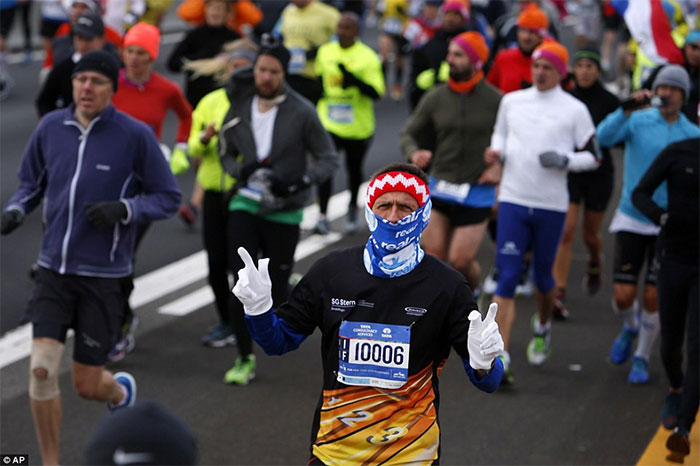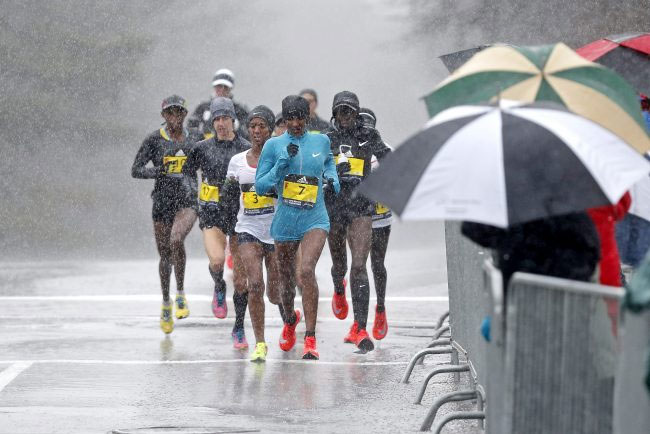Vietnam is a tropical monsoon country. We often face hot weather along with the risk of heat shock, rather than the biting cold that leads to hypothermia. However, during winter mountain running events, the risk of hypothermia can occur.
What You Need to Know About Hypothermia While Running
With the end of the Covid-19 pandemic, we can participate in competitions in some colder climates. Therefore, it is essential to understand the condition of hypothermia while running – which not only significantly affects performance but also poses serious health risks.
What is Hypothermia While Running?
Hypothermia is a condition where the core body temperature drops below 35 degrees Celsius. You might be surprised to learn that hypothermia can occur not only in winter. It can also happen in summer, especially when running in heavy rain and strong winds.
When experiencing hypothermia, you will lose the ability to assess and make accurate decisions. As a result, the risk to your health increases. Making careless decisions while running becomes dangerous, such as running in isolated areas or over complex terrains, which can have serious consequences.
Studies show that 20-50% of hypothermia-related deaths occur when victims remove their soaked clothing. Clearly, this is a poor decision, as wearing wet clothing is still better than wearing nothing. This erroneous decision arises from the very state of hypothermia.

Hypothermia will cause you to lose the ability to assess and make accurate decisions.
Factors Leading to Hypothermia
Air Temperature
This seems to be the most obvious cause. However, it is also the factor that can easily trick runners. Sometimes, temperatures of 10-15ºC can lead to hypothermia, especially when combined with other factors.
Rainwater
Cold rain, and in northern countries, falling snow, will make you wet. A prolonged downpour can significantly lower your skin temperature and trigger the onset of hypothermia.
Evaporation
When water evaporates, it cools the body, causing the core temperature to drop even further. Sweating also leads to heat loss. Cotton clothing exacerbates the problem. Therefore, remember to choose appropriate materials for running. It is best to wear layered clothing with zippers.
Wind Speed
The stronger the wind, the faster the evaporation and the quicker the body loses heat. If you are soaked from the rain and drenched in sweat, the heat loss process accelerates.
Slower Running
At the end of a long run or race, your body becomes fatigued, making it impossible to run as fast as before. As a result, the body produces less heat. Low temperatures, wet rain, and cold winds can take their toll, leading to hypothermia.
Physical Exhaustion
When you are exhausted, out of energy, and your glucose reserves are low – a common occurrence in all-out races, your body has to work harder to keep warm. However, this is clearly more challenging than when you are fully energized.
Sunset
The risk of hypothermia increases when the sun is no longer present. Environmental temperatures drop rapidly at sunset. This is particularly frightening in ultramarathons, where many athletes are at their most fatigued as they struggle to finish before nightfall.

Boston Marathon on April 16, 2018.
How to Recognize and Handle Hypothermia
How can you tell if a runner is experiencing hypothermia? The first sign is difficulties in speaking full sentences and communicating. A runner may shiver uncontrollably even if the temperature is not extremely low. If you are running and find yourself shaking so much that you cannot stop, your body temperature may have dropped to around 35-36 degrees Celsius (normally around 37ºC). This is also the point where your running skills diminish, and you risk injury if running over complex terrain. The sensible advice is to stop running and find a warm place to rest.
If you have concentrated and tried your best but still cannot stop shaking, you have reached a moderate level of hypothermia. The core temperature drops below 35 degrees Celsius. Your lips and ears may turn blue, and your fingers may also appear blue. You need to seek medical assistance immediately.



















































